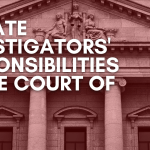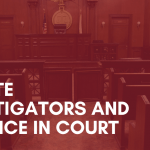A background check or screen basically refers to the process of gathering and compiling criminal, commercial as well as financial records of an organization or individual. The purpose and legitimacy of background checks vary between industries, states, and individuals. They are mainly requested by employers on candidates seeking positions that require high security or great levels of trust such as courthouses, hospitals, government or financial institutions. Private investigation firms are in charge of conducting these checks and they dive into an individual’s credit histories, past employment records, and criminal history. These checks help to verify someone’s character and fitness and to identify potential hiring risks for security purposes. Ideally, it is the employer’s obligation to ensure they uphold a safe work space environment for all their employees.
In today’s rapidly evolving social media landscape, reviews on social media platforms are just as integral in making informed decisions about an individual. In fact, background screening is usually incomplete without conducting a social media background check. Our company offers detailed and in-depth social media investigations for all sorts of companies. We divulge compelling stories about individuals’ histories and current interests, activities, and associations as well.

As a hiring manager, chances that you are well trained on discrimination laws concerning applicants are particularly high. However, you might be skeptical as to how these laws pertain to the digital world. Whether you are new to social media background checks or trying to find ways to incorporate social media screening into the company’s recruitment process, this blog is suitable for you. Here are a couple of best practices to consider when conducting these checks.
When it comes to hiring candidates, it is vital to avoid looking at protected class information concerning the candidate. This includes but is not limited to race, religion, age, sex, and disabilities among others. Hiring a third party screener to do the investigation on your behalf will get rid of that information in order to protect the candidate’s privacy minimizing the risk of discrimination and protecting the company from breaching privacy claims.
Since social media hiring reports are viewed as consumer reports, it is mandatory for employees to get written consent from their employees or applicants before the screening. Creating a company-wide social media policy for employees to adhere to will also come in handy. Such policies act as a guide to ensure that content on their social media platforms reflects the company’s values. This helps to maintain clear expectations between the company and the employees. A good example is companies wanting employees to use pre-written statements to describe their jobs online. Some ask them to add twitter disclaimers in order to indicate that the views expressed are exclusive of their employer.

Nothing is more important for a Human Resource Manager than keeping things standard for all employees. Once there is a social media screening policy in place, all applicants will need to go through the same criteria. A uniform screening procedure ensures and maintains equality as well as fairness in the recruitment process.









